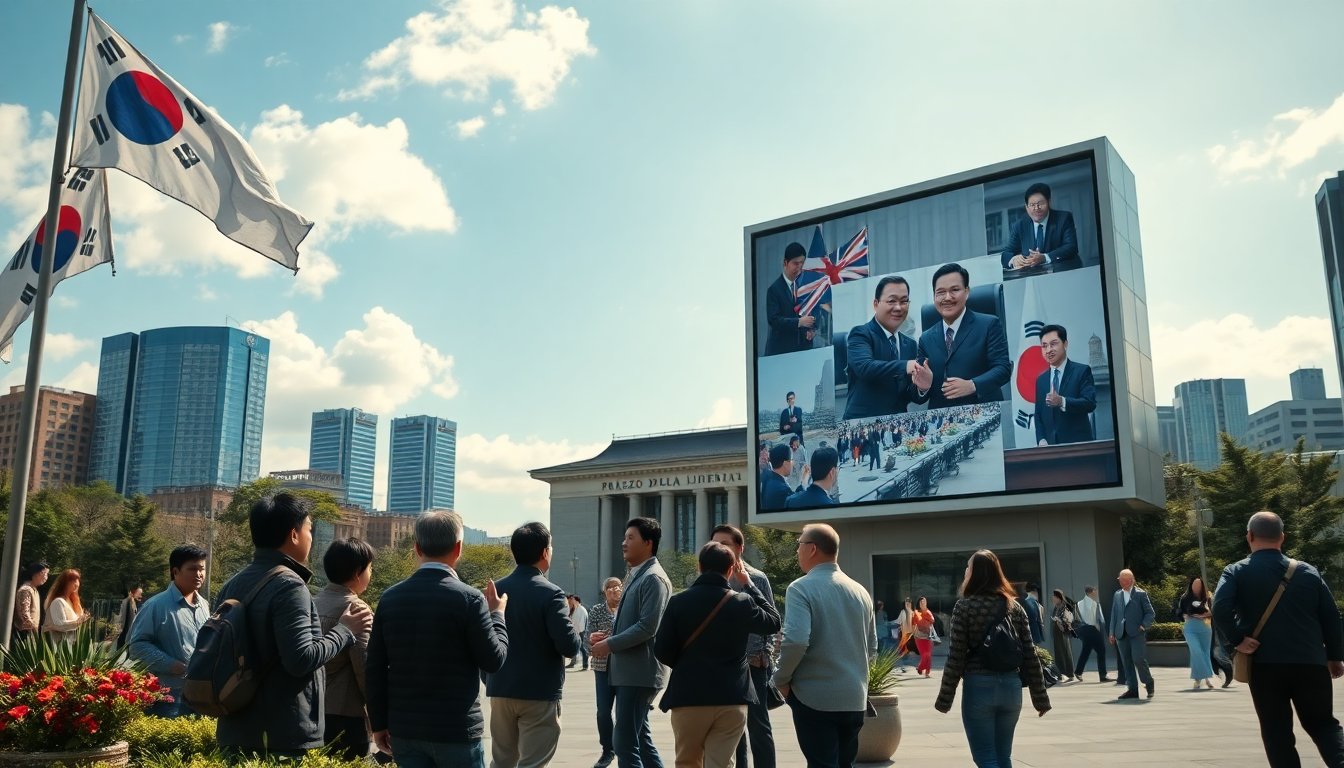Table of Contents
“`html
In a recent statement, South Korean President Lee Jae-myung raised alarms regarding escalating tensions between North and South Korea, labeling the current circumstances as potentially dangerous. Since his inauguration, Lee has taken significant steps to reduce hostilities and foster communication with Pyongyang. He has expressed a willingness to engage in discussions without any preconditions, marking a shift from the more aggressive stance of his predecessor.
During his address, Lee underscored the necessity for both parties to establish a dialogue to avert accidental confrontations that could arise from miscommunications or military incidents. This call for peace comes amid heightened military activities and incursions by North Korean troops, raising concerns in the South regarding security and stability.
Inter-Korean relations: a call for communication
Lee’s administration has publicly invited North Korea to engage in direct talks, aiming to clarify military protocols and reduce the chances of an unintended clash at the border. The Vice Minister of National Defense, Kim Hong-cheol, articulated this proposal, emphasizing the importance of setting clear guidelines for military operations along the military demarcation line. Such measures are deemed essential for ensuring that both nations can coexist without escalating tensions further.
Efforts to elicit a response from Pyongyang
Despite these overtures, North Korea has yet to respond to the South’s invitation for dialogue. The silence from Pyongyang raises questions about its willingness to engage in discussions aimed at de-escalating the situation. Observers note that the North’s historical reluctance to participate in talks could hinder efforts to stabilize relations. Nonetheless, Lee remains optimistic, stressing that continuous attempts to foster communication are vital for peace on the Korean Peninsula.
Future diplomatic ventures and global responsibilities
In addition to addressing regional tensions, President Lee is also focused on South Korea’s role in the global arena, particularly in light of the upcoming G20 summit, which South Korea is set to host. Lee expressed a deep sense of responsibility regarding this prestigious event, aiming to enhance the G20’s effectiveness in promoting global economic cooperation. He articulated that South Korea’s leadership in this forum would serve as a pivotal moment for the nation’s international diplomacy.
During his participation in the ongoing G20 summit in Johannesburg, Lee advocated for equitable access to artificial intelligence technologies, emphasizing the need for global frameworks that ensure all nations benefit from advancements in this field. The South Korean president is committed to working collaboratively with the international community to realize a vision of inclusive technological growth.
Promoting resilient supply chains
Another key aspect of Lee’s address revolved around establishing stable and mutually beneficial supply chains for critical minerals. Amid increasing tensions between the United States and China over trade policies, Lee stressed the importance of cooperation between resource-rich countries and those reliant on imports. The adoption of the Critical Minerals Framework by the G20 marks a significant step towards achieving these goals, and South Korea intends to play a leading role in enhancing international collaboration in this regard.
As Lee prepares for his international engagements, including meetings with global leaders, he is keen on promoting South Korea’s initiatives aimed at enhancing the digital capabilities of youth and women, particularly in developing regions such as Africa. His administration’s pragmatic approach to diplomacy aims to reinforce South Korea’s position as a leader in fostering global economic growth and addressing pressing challenges like climate change and food insecurity.
President Lee Jae-myung faces the complex challenge of navigating relations with North Korea while also enhancing South Korea’s stature on the world stage. His proactive stance on fostering dialogue with Pyongyang, coupled with his advocacy for global cooperation, reflects a comprehensive strategy aimed at securing both national and international stability.
“`


